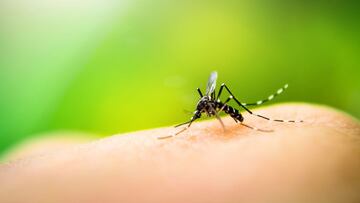Alert in Nevada: what happens if a human contracts West Nile virus?
After mosquitos in southern Nevada tested positive for West Nile Virus, public health experts are warning residents to take precautions to avoid infection.


According to the Department of Health and Human Services, more than 2,000 cases of West Nile Virus, an illness spread through mosquitos, were reported in the United States last year. Already in southern Nevada, officials are finding infected mosquitoes within the population. Public health officials from the City of Las Vegas are warning residents to take precautions to avoid being bitten and infected.
According to @SNHDinfo, more mosquitoes in the Las Vegas area tested positive for the West Nile Virus, making it the highest level of activity in their Mosquito Surveillance Program’s history so early in a season!😱
— City of Las Vegas (@CityOfLasVegas) June 10, 2024
A total of 91 mosquito pools, comprising 3,081 mosquitoes from… pic.twitter.com/wjk8UjH1GX
The highest number of cases are typically reported in August and September, meaning that the use of bug spray, ensuring windows are properly sealed with screens, and ensuring there are no areas with sitting water around your house or place of work will be critical throughout the summer.
What are the symptoms of West Nile Virus?
If you are bitten by a mosquito, these are the symptoms you should be looking out for:
- headache
- body aches
- joint pains
- vomiting
- diarrhea
- rash.
Related stories
The good news is that eight in ten people infected with West Nile will not show symptoms. However, for those who do, the illness can be quite severe. “About 1 in 5 people who are infected develop a fever with other symptoms” highlighted above, with an even smaller group, around 1 in 150, developing the most severe presentation manifestation of the disease, where the central nervous system is attacked. This more serious condition can lead to encephalitis or meningitis, which describes inflammation of the brain or “the membranes that surround the brain and spinal cord.” Ten percent of those who reach this level of illness die as a result of their infection, according to the CDC.
Who is at greater risk of severe infection?
The CDC warns that those over sixty face the greatest risk of severe infection, with the chances rising to 1 in 50. Additionally, those with pre-existing medical conditions like cancer, kidney disease, and diabetes are also more likely to become ill upon being infected.
Complete your personal details to comment